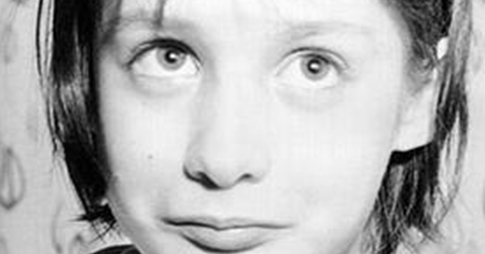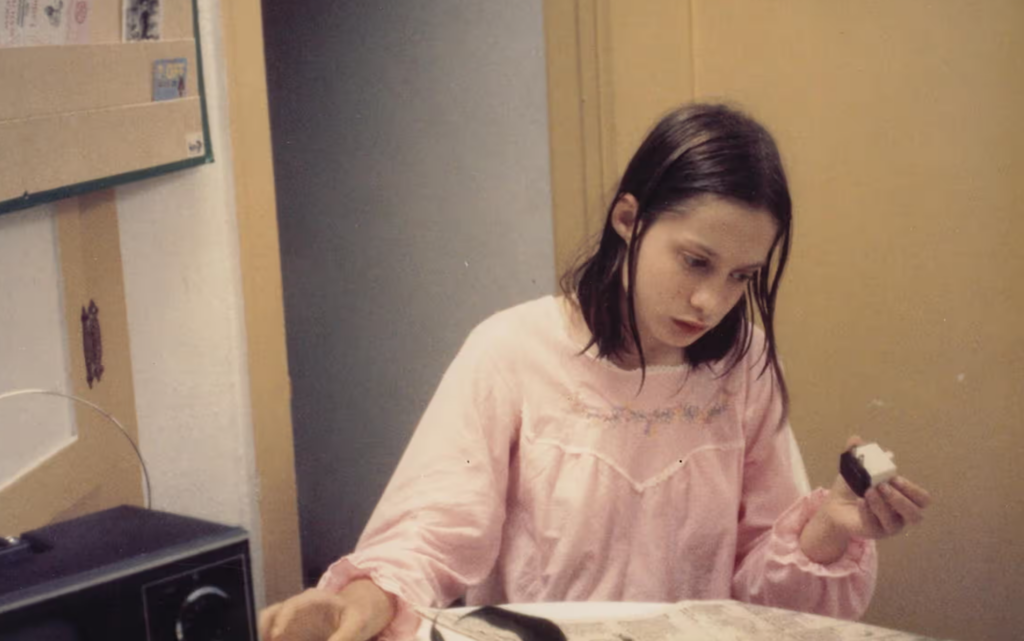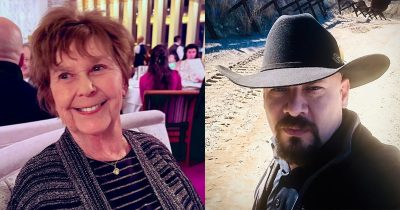
More than 50 years ago, a 13-year-old girl shuffled into a Los Angeles welfare office, but she wasn’t like any child anyone had ever seen.
Frail and with hands curled like a frightened rabbit, she was mute and barely able to walk. She was called Genie — a name given to protect her identity — but her story would shock the nation and challenge everything we thought about language, the brain, and human connection.
Who was Genie Wiley?
Genie Wiley was born in 1957, in Arcadia, California. She could have been just like any other child — but her name will forever be linked to torture and abuse.
She was the youngest of four children and the second oldest to survive in her family. Her father, Clark Wiley, had worked as a flight mechanic during World War II and stayed in the aviation industry afterward. Her mother, about 20 years younger and from a farming family in Oklahoma, had moved to Southern California as a teenager with family friends escaping the Dust Bowl.
Genie’s early life was filled with heartbreaking neglect and cruelty. Born five years after her brother John, she seemed healthy at first but faced challenges like a congenital hip problem that delayed her walking. This delay fueled her father’s cruel belief that she was mentally disabled, and from that moment, he began to isolate and ignore her — even forbidding her mother and brother from interacting with her.
As she grew, Genie’s father’s behavior became terrifying. After a family tragedy, he spiraled into rage and paranoia, convinced the outside world was a threat. He confined Genie to a small, dark room, tying her to a child’s toilet during the day and a crib at night, sometimes even leaving her immobilized for hours. He forbade any noise from her, and if she made a sound, he would beat her. To silence her, he would growl like a dog and claw at her, instilling a deep fear of animals.

Genie’s diet was limited to baby food and liquids, often force-fed harshly, and she was rarely allowed outside or spoken to. Her father kept the whole family under his strict control — no TV, no radio, no normal conversation — making sure Genie never heard the sound of normal language or saw sunlight.
Her mother, mostly blind and terrified, couldn’t protect her and was beaten herself if she tried to help. Even Genie’s brother was forced into silence and sometimes made to participate in the abuse. Despite promises that help would come when Genie turned 12, her father broke his word, and the nightmare continued until she was finally discovered.
One of the worst child abuse cases
When Genie’s mother finally escaped with her to the welfare office, she stumbled into the wrong room, but what happened next changed many lives forever.
The staff at the Los Angeles social workers’ office initially believed they were dealing with a case of undiagnosed autism — but the horrifying truth soon came to light.
Doctors called her the most profoundly damaged child they’d ever seen.
When she was discovered, Genie was still in diapers — a pale, fragile figure, battered by years of neglect. Despite the brokenness, there was a haunting beauty about her, with a face that eerily resembled Anne Frank.
She had extra teeth, could barely chew or swallow, and couldn’t focus her eyes or control her limbs. She weighed only 59 pounds, like a child half her age.
Scientists from all over the country flocked to study Genie, fascinated by the possibility of understanding how language develops, or if it ever could, when someone misses the critical years of childhood.

Genie picked up a few basic words like “blue,” “go,” and “mother.” She was able to draw, complete puzzles, and communicate without speaking. However, mastering grammar — the rules and structure of language — proved impossible.
Scientists believe her brain’s “language window” had already closed. She moved with an unusual “bunny walk,” often spat, and couldn’t fully straighten her arms and legs. Quiet and incontinent, unable to chew properly, at first she only seemed to understand her own name and the word “sorry.”
Still, Genie’s story sparked fierce debates among linguists, psychologists, and caregivers. Some saw her as a miracle in progress, others feared she was slipping away again.
The tragic fallout
Sadly, after brief progress, Genie’s life spiraled back into darkness. Shortly after Genie turned 18, Genie was sent back to live with her mother. But within a few months, her mother admitted she couldn’t provide the care Genie needed. At her request, officials placed Genie into the first of several institutions and foster homes meant for adults with disabilities.
Unfortunately, these environments were anything but supportive. Fights broke out between her caretakers. Funding vanished. She was shuffled through foster homes and state institutions, hidden away from the public eye.
The trauma took a heavy toll: Genie’s health declined drastically, and the progress she had made in language and behavior quickly unraveled.
Those who had cared for her were haunted for decades. UCLA linguist Susan Curtiss, who had grown close to Genie, still longs to see her. Back in 2016, she told The Guardian:
“I’m pretty sure she’s still alive because I’ve asked each time I called and they told me she’s well. They never let me have any contact with her. I’ve become powerless in my attempts to visit her or write to her. I think my last contact was in the early 1980s.”
Journalist Russ Rymer, who documented Genie’s story in a bestselling book, says it changed him forever. He covered Genie’s story extensively in the 1990s through two New Yorker articles and his book Genie: A Scientific Tragedy, described the photos from her 27th birthday as deeply sad. He wrote of “a large, bumbling woman with a facial expression of cowlike incomprehension … her eyes focus poorly on the cake.” He also noted her “dark hair [was] hacked off raggedly at the top of her forehead, giving her the aspect of an asylum inmate.”

To this day, Genie’s fate remains a mystery. She is believed to still live in state care somewhere in California, but her whereabouts are secret. As of 2024, Genie would be 67-68 years old.
Her story is a heartbreaking reminder of the resilience of the human spirit and the devastating cost of abuse and neglect. Genie wasn’t just a subject of scientific curiosity — she was a human being robbed of her childhood.
The shadow of Clark Wiley’s abuse never left Genie’s brother, John. After enduring the beatings and watching his sister suffer, he told ABC News in 2008, “I feel at times God failed me. Maybe I failed him.” John saw Genie for the last time in 1982 and eventually lost contact with their mother, who passed away in 2003. “I tried to put [Genie] out of my mind because of the shame. But I’m glad she got some help.”
John faced his own struggles, after some run-ins with the law, he settled in Ohio working as a house painter. He married and had a daughter, Pamela, but the marriage fell apart, and Pamela, Genie’s niece, battled addiction.
In 2010, police found Pamela intoxicated and charged her with endangering her two daughters — Genie’s grandnieces. Sadly, there was no miracle ending. John, who suffered from diabetes, died in 2011, and Pamela, who apparently never met her aunt Genie, passed away just a year later in 2012.
Both of Genie’s parents were charged with abuse, but her father died by suicide just one day before he was due in court. Police discovered two suicide notes — one addressed to his son, telling him, “Be a good boy, I love you,” and another directed at authorities. One of the notes — sources differ on which — contained the chilling statement: “The world will never understand.”
Genie’s life raises urgent questions: How do we protect vulnerable children? How do we balance scientific curiosity with compassion? And can love and language truly heal the deepest wounds?
Her legacy is a call to action — to never let a child be invisible, unheard, or forgotten.
READ MORE
- The fascinating and tragic story of Mary Ann Bevan
- 27 year old dies tragically from cancer, then family discovers Facebook message




